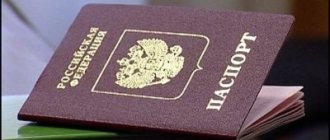Concept and types of property
The idea of it has been developing in science for thousands of years, and it has become, first of all, an official object of legal nature, as well as philosophy. For a long time, property as a special social relationship was the direct subject of civil law, but with the further evolution of social production it becomes, in addition to legal, also a fundamental economic category.
The emergence of states contributed to the emergence of state property. In this regard, a variety of forms of this economic category has formed: personal, family, clan, state.
Intertribal, and subsequently interstate wars, inheritance and seizure of wealth gave rise to such inhumane forms of property as serfdom, slavery, the objects of which are people.
During feudalism, the existing subsistence economy was closely connected with the feudal lord through ownership of the land, and through the tools of its cultivation, and through livestock. During the period of capitalism, the means of production are appropriated by the owners of capital. The private form of property gradually begins to flourish, and the relationship between its objects and subjects is increasingly divided into disposal, possession and use. Subsequently it changes. A joint stock form of ownership appears.
In addition to ownership of land, natural resources, buildings and structures, equipment and other real estate, the role of ownership of jewelry and gold, securities, and cash is being strengthened.
Property relationship is the property relationship of the subject (the owner - the active side of these relationships, owning its objects, as well as disposing and using them) with an object (objects of nature, energies, property, intellectual and spiritual values, substances, information - the passive side of the relationship in question). Typically, the object itself is simply called property.
A broader interpretation of this economic category was provided by various economists, who proceeded from various types of its static (dynamic) basis, the main manifestations in daily practice, historical and class character, and so on.
In general, property is the relationship between certain economic agents regarding the appropriation of consumer goods and economic resources. Awareness of the essence of this concept leads to the need to consider it in the framework of the relationship with other economic relations of society, such as production, distribution, subsequent exchange and consumption of existing goods. It is this that most fully reflects the socio-economic character of the current era.
All existing economic systems can be classified based on their relationship to property in relation to the means of production. It is customary to distinguish the following types of property, which are characterized by various methods of combining the producer with the means of production; distribution of the received social product among members of society:
- primitive communal;
- feudal-serfdom;
- slaveholding;
- capitalist.
Types of property rights
The main types of rights in this area are real, obligatory and intellectual, each of which will be discussed further.
Note! The classification of the entire set of rights into three categories has no relation to taxation issues or other legally significant actions. The above division is more theoretical in nature and is aimed at forming a general idea of property rights.
Rights to the results of intellectual activity, means of individualization
This category is the newest and most dynamically developing category, which is increasingly used in the modern world, and is regulated by Part 4 of the Civil Code of the Russian Federation.
Intellectual property refers to two components - the results of human activity and means of individualization, which are equated to the former. A person actively engaged in creative, scientific or other intellectual activities can create an object with ownership rights to it. Practice shows that the main products of this type of property are:
- Databases, registries and systems.
- Phonograms, audio recordings, performances.
- Invention, experimental results, models and industrial samples.
- Names for brands and companies, service marks and goods.
- The results of literary activity, art or science.
- Software for technology.
Rights to the results of a person’s intellectual work consist of several categories - the ability to use, dispose of and protect one’s works from illegal taking and use by third parties. Such powers can belong to either one person or a group of people, if the creation was published as a group.
Every creator can not only exercise their rights, but also protect them. To do this, a person’s right to a specific object or product is established in court, with the provision of evidence confirming the fact of ownership.
Note! The very results of a person’s activity or individualization cannot be transferred from one person to another or alienated. Only rights to the results of activities, or material media with them, participate in civil circulation.
Characteristics of rights of obligation
The group under consideration includes a system of rights that is closely related to property relations that arise in the process of implementing civil contractual relations. A special feature is the presence of two parties - the creditor and the debtor.
It is important to understand that such an obligation is the relationship between the parties in the process of economic turnover of goods, that is, the debtor has an obligation to transfer property or sell a service, work, make a payment, or refuse any action.
The creditor has the right to demand the timely fulfillment of his obligations by the debtor. There is a state of interconnection and dependence of one on the other, that is, rights of obligation give the creditor the opportunity to rule over the debtor.
In practice, they can be implemented when transferring property for rent (temporary use) to a third person. In this case, the owner has his own set of rights and obligations, and the tenant has his own.
For example, a lender may require timely payment of housing, careful handling of real estate, and in return he is obliged to provide housing. The tenant can temporarily use and own an apartment or other residential premises, in return he is obliged to make payments.
Note! In a situation with real estate rental, property and liability rights are mixed. The second concerns specifically the responsibilities of the parties. The first relate to real estate and property rights.
Characteristics and features of property rights
Property is a subjective human right, that is, its implementation and condition depend on the owner. This category has a specific object - a thing; in addition, its totality includes not only use, possession or disposal, but also following.
Most often, real rights are understood as rights that enable the owner to receive benefits from certain actions or to satisfy his needs. The owner is authorized to dispose of the object as he sees fit, but within the framework of the law, of course.
The peculiarity is expressed in the fact that the person who owns the property can transfer the rights to a third, but the ownership will remain. For example, when renting out an apartment, the owner transfers the ability to use and manage to an outsider, but he can only own it himself.
In real rights, the owner of property can be not only one person, but a group of persons with shared ownership. In most cases, this situation occurs in families when everyone has their own share of the apartment. In this case, if the spouse has decided to dispose of the property, he must provide written consent of the spouse.
Note! If during the rental period of the property its owner has changed (the property has passed to another person), this is not a basis for terminating the lease agreement.
The most common types of property rights are:
- Lifetime ownership of land that has been inherited, but is owned by the state.
- Easement.
- Operational management.
- Economic management.
- Permanent use of the land.
Typology of the category under consideration
Her relationships improved with the development of society. In this regard, a wide variety of forms and types of property appeared. The first are specific characteristics of the ownership of the products of social production and material factors by its main subjects, and the second are qualitatively special stages in the evolution of property. How exactly are the forms and types of property interconnected? This is shown in the table below.
| Forms of ownership | Types of property |
| Private State Collective | Slave-owning (antique, Asian) Capitalist Primitive communal Feudal Socialist |
They are directly dependent and predetermined by the specific historical conditions of life of society. At the same time, types of property are determined by the existence of a certain socio-economic system. This classification is called formational, but does not entirely coincide with it. As has already become clear, the above types of property correspond to its various forms. Thus, private property - products of production and its means - belongs to individual individuals. Collective is the unity of property and labor (collective), or more precisely, their special state, within which an individual member of the collective is the owner of the resulting products and means of production.
Public property is the ownership of various types of objects by the entire society (shared property). This form most often acts as a state form, which can only arise as a result of:
- construction of facilities sponsored by the state budget;
- nationalization (moving property from private to state ownership);
- acquisition by the state of a pact of shares (controlling) of private firms.
Forms of real estate ownership
Real estate includes objects whose location cannot be changed, namely: residential premises and land plots. The owner exercises his right of private property directly at the location of the property. Each object has its own specific address. To determine the owner of an object, the following types and forms of ownership of real estate are assumed:
- state;
- collective;
- private.
The difference is that in the state form the owner is the Russian Federation, as well as its subjects, in the second case - local government bodies, and the private form implies ownership of property by individuals and legal entities. Regardless of the form of ownership, each owner, in addition to the right, also has certain responsibilities in relation to the property. State ownership has its own characteristics:
- the state may even own property that has been withdrawn from circulation;
- only the state has the right to confiscate property from other owners;
- independent determination by the state of the conditions for the use of state property.
The state and constituent entities of the Russian Federation own real estate, which is necessary for the implementation of their functions. These can be buildings that house government agencies, the army, state-owned enterprises, as well as defense facilities and factories. Federal roads are also considered state property. In the Russian Federation, these objects are not subject to privatization, since they are intended to protect the interests of the population and implement state goals.
The right of private property is an absolute, legally protected right to certain property of a specific person. Without private property, a market economy cannot exist. The legislation of the Russian Federation does not limit the permissible number of objects of ownership for each citizen, or the maximum or minimum value of property. Private property is subject to the right of inviolability. All objects of ownership within the Russian Federation are subject to state registration.
Read also: Abolition of the certificate of state registration of property rights in 2020
Classification of forms of the concept under consideration
There are different types of property based on its forms and the nature of the subjects:
1. Depending on the form of assignment:
- individual (labor economy, personal property, personal subsidiary plot, individual labor activity);
- state (municipal, national, entities on state territory);
- collective (cooperatives, rental enterprises, joint-stock companies, collective enterprises, partnerships, associations, etc.).
2. Based on ownership:
- state (federal, municipal, republics and other entities on the territory of the state);
- private (citizens, legal entities: organizations, enterprises, associations);
- joint (common for organizations and enterprises).
Property rights concept
As a concept, property rights have many definitions in the legal literature.
In most cases, it is considered from two positions: in the objective and subjective sense. Definition 1 In an objective sense, property rights are represented as a set of legally enshrined rules that protect and secure the ownership of property by certain legal entities and individuals, as well as reflecting the volume, content of the owner’s rights, methods and implementation of these rights.
Definition 1 In an objective sense, property rights are represented as a set of legally enshrined rules that protect and secure the ownership of property by certain legal entities and individuals, as well as reflecting the volume, content of the owner’s rights, methods and implementation of these rights.
Definition 2 In a subjective sense, the right of ownership means the right of ownership, use, and disposal by the owner of his property within the boundaries defined by law. From the above, we can conclude about the dual nature of the concept of property rights.
1.
What is property? What is the economic content of property? 2. What types of property rights are there?
3. Explain the concept of “form of ownership”.
How have property relations changed in different economies?
Geography 1. What is property? What is the economic content of property?
2. What types of property rights are there? 3. Explain the concept of “form of ownership”.
How have property relations changed in different economic systems?
4. What forms of ownership exist in modern Russia? 5. How can the transfer of ownership be carried out?
6. What are the ways to acquire ownership? 7. How can termination of ownership occur?
8. Imagine yourself as the owner of something.
Explain all possible ways of your influence on this thing Author: Guest Answer(s) to the question: Guest: 1) Economic content of property Property is a complex social phenomenon that is studied from different angles by several social sciences (philosophy, economics, jurisprudence, etc. ) .
Each of these sciences gives its own definition of the concept of “property”. In economics, property is understood as real relations between people that develop in the process of appropriation and economic use of property.
The system of economic property relations includes the following elements: a) relations of appropriation of factors and results of production; b) relations of economic use of property; c) relations of economic sale of property. 2) Types of rights - property and possession.
Forms of ownership - private, state, municipal. 3) Form of ownership - legally regulated property relations that characterize the assignment of property to a specific owner by right of ownership.
In the Russian Federation, the following forms of ownership are recognized and guaranteed by the Constitution: - state ownership; — municipal property; - private property; + The Constitution of the Russian Federation allows for the existence of other forms of ownership. 4) property in the Russian Federation is divided into private, state and municipal.
The rights of all owners are protected equally. 5) The owner has the rights to own, use and dispose of his property. Thanks Didn't find the answer? Find the one you need Answer a question Send Similar questions Mathematics Mathematics Literature Russian language Geometry
Intellectual property: concept, characteristics, types
It is a set of personal property and non-property rights (exclusive) to specific information on a specific material medium that has an unlimited number of copies, and intellectual property here is not the rights to copies, but the information itself.
Its signs are:
- Imposing restrictions on the validity period of the corresponding intellectual right, territories, replication (production volume), etc.
- Possibility of purchase and sale, rental, exchange for other types of property or gratuitous transfer, etc.
- Intangibility and intangibility (it cannot be identified or determined from the position of physical parameters).
- The meaninglessness of repeated reproduction (as opposed to material property).
- The specificity of the form of legal protection, which takes into account its significant feature and which is accessible to perception.
Types of intellectual property are as follows:
- Industrial property (utility models, inventions, prototypes, selection achievements, trademarks, etc.).
- Copyright (literary and artistic works, copyright, scientific works, databases and computer programs, works of art, etc.).
- Know-how (technological, technical, commercial, production, organizational and managerial, etc.).
- Related rights (radio, television programs, sound recordings, performing and directing activities, arrangements, etc.)
These are the main objects and types of intellectual property.
What types of home ownership exist?
The concept of property is established in the civil legislation of the Russian Federation. By virtue of Art. 209 of the Civil Code of the Russian Federation , ownership of real estate allows you to dispose of it in accordance with current regulations and business customs. Private property implies the unconditional right of an individual or legal entity to specific property. It is classified into the following types:
- individual;
- shared;
- joint.
Each of the listed property options has its own characteristic features, which should be taken into account when purchasing an apartment or executing any other civil transaction involving residential real estate. Next, we will consider in detail the features and differences of each type of property.
- Individual property.
The main distinguishing feature of individual property from other types is that an individual or legal entity is the sole owner of the property. For example, an apartment may belong not only to a citizen, but also to an organization and be used as corporate housing for its employees. An apartment can be purchased on the grounds provided for by the Civil Code of the Russian Federation, that is, under a contract of sale, gift, exchange, through the privatization of social housing of municipal or state housing stock, by inheritance, etc.
When making a transaction, its participants enter into one or another written agreement, for example, an apartment purchase and sale agreement. The text of the document specifies all essential terms, as well as the rights and obligations of the parties. Further, in order for the buyer to become the full owner, the contract and accompanying documentation are submitted to the Rosreestr branch for registration.
After a week, the buyer becomes the owner of the square meters, about which he in fact receives an extract from the Unified State Register of Real Estate. If the owner of the home is the sole owner, then he does not need the consent of other family members to dispose of his living space; for example, by his own will, he has the right to donate an apartment, bequeath, sell or make other civil transactions.
- Shared ownership.
Shared ownership implies that the property is owned by several owners.
Shared ownership of square meters can arise for various reasons, including privatization for all household members, division of housing acquired jointly by spouses, inheritance of living space together with other heirs.
It should be noted that an apartment that is in shared ownership categorically cannot be divided “in kind”, since according to the letter of the law, a living space must have a separate entrance, its own bathroom, engineering systems and other technical conditions. In such cases, so-called “ideal shares” are formed, that is, in other words, a share in the right of ownership, without actually separating it in the property.
When selling his share, the owner is not obliged to ask the consent of the other owners, however, by virtue of the law, they have the right of first refusal. That is, the owner of a share, when selling it, is obliged to notify other owners in writing of his intention, while explaining the terms of the sale and announcing the price. Current legislation allows the remaining owners 30 calendar days to make a decision; in the absence of any response to the written notice, the share in the apartment can be sold to third parties.
If the transaction was completed without warning the other owners, its validity can be challenged in court. In this case, the applicant may be one of the owners of this property.
When registering a deed of gift for a share in an apartment, the owner is not obliged to notify other owners about this, since they cannot prevent him from making such a transaction. Often, the execution of a deed of gift in such cases is regarded by the courts as a sham transaction covering up a purchase and sale. A sham transaction is void and has no legal consequences for the parties.
If all property owners agree to its sale or alienation in another way, then there will be no obstacles to the transaction.
- Joint ownership
This type assumes that the property is jointly owned by two or more persons, without determining shares. For example, joint property arises when spouses acquire a property, or any other movable or immovable thing, or as a result of a privatization procedure. By force of law, participants have equal rights to joint property. If, in case of joint ownership, the property is registered in the name of one of the parties, the second party is exactly the same owner, that is, it has all the same rights to the property
Unlike individual property, when its owner has the right to independently dispose of the property, any transactions the object of which is joint property require consent from the second owner. For example, if a husband wishes to sell a shared apartment, he must obtain written consent to the transaction from his wife.
If the owner of the property was unable to obtain consent to the transaction, he has the right to legally demand the allocation of a share from the common property, in particular, a share in the apartment. If the court decision is positive, the form of ownership changes from joint to shared. As a result, the owner has the right to dispose of his share of the living space as he sees fit; he can donate it, bequeath it, or sell it according to his will. However, after allocating a share from the common property, when disposing of the property, for example, making a purchase and sale transaction, its owner must take into account that other owners have a priority right to purchase his part of the apartment.
We remind you that even if you thoroughly study all the data that is in the public domain, this will not replace the experience of professional lawyers! To get a detailed free consultation and resolve your issue as reliably as possible, you can contact specialists through the online form .
Land ownership: forms of ownership (use), types
It is customary to distinguish the following types of land ownership:
- Federal state property.
- State property of the constituent entities of the Russian Federation.
- Municipal (city).
- Private.
The owners of this factor of production can be both a legal entity and an individual. There are the following forms of land ownership (use):
- lifelong inheritance;
- unlimited use;
- right of easement (limited use);
- land ownership;
- rent
Types of property rights:
- property rights (includes possession, use, disposal);
- limited property rights (rights to other people's things - possession and use).
Read more By exercising his property rights, the owner of the property can transfer, while remaining the owner, to another person part of his property rights, for example, by transferring the property for rent.
By transferring his property for temporary use, the owner-lessor retains the right to dispose of the property (or disposal and possession), granting the right of possession and use (or use) to the tenant.
That is, the lessor is limited in his property rights for the term of the lease agreement - in the right to use his property or possession and use, but not in the right of disposal. As the owner of the property encumbered by lease relations, the lessor has the right to dispose of the property, including by selling (donating, etc.) to another person; Moreover, the transfer of ownership of property to another person is not grounds for termination or modification of the lease agreement. In accordance with the provisions of civil law, property can be owned not only by one person, but also by two or more persons (Art.
244 of the Civil Code of the Russian Federation). For example, the property of spouses acquired during marriage is, as a rule, their joint property (Art.
34 of the Family Code of the Russian Federation). And, as a result, being joint owners of property, spouses have equal property rights to this property, and the realization of property rights is possible either jointly or by one of the spouses with the consent of the other. Property rights, along with the right of ownership, in particular, are:
- right of operational management,
- easements,
- right of lifelong inheritable ownership of a land plot,
- the right to permanent (indefinite) use of a land plot,
- right of economic management.
Particular form of assignment to the factor of production under consideration
There are the following types of land ownership:
- Common property.
- Individual property of legal entities and individuals.
There are such types of common property as:
- general share (each owner knows his share in advance);
- general joint (shares of owners are not agreed upon in advance).
A legal entity, as well as an individual, can, if they wish, unite their land plots that are in their ownership, and subsequently use them as common joint (shared) ownership.
What forms of ownership exist
There are different forms, it all depends on who the owner is.
The main established forms:
- state, which is divided into municipal and federal;
- private, can be individual or collective;
- the property of religious and public organizations that have the right to use their property only for certain purposes, within the framework prescribed by the constituent documents of a particular religious or public organization.
Federal property includes:
- Natural resources;
- cultural and historical sites;
- individual educational facilities, scientific institutions.
- individual agricultural and industrial enterprises;
- unique natural objects;
- funds from the state treasury;
Municipal property includes buildings, land plots, residential and non-residential stock, utility networks, structures located on the territory of the municipality and owned by local governments.
Private (individual) property
This includes the property of an individual (person) or legal entity (firm, enterprise). Private property is not limited in quantity; legally, an individual or legal entity can be the owner, for example, of an entire metallurgical plant, dozens of houses or buildings. Only property that has been withdrawn from state circulation (historical or cultural monuments, nuclear weapons) cannot be acquired for private ownership , other).A citizen may own:
- bonds, shares, securities, cash;
- items purchased to satisfy his personal needs - plots of land, residential buildings, apartments, cars, garages, various types of household appliances, much more;
- transport, buildings or premises used for organizing entrepreneurship and production;
- items of intellectual property (literary works, musical works, images, etc.).
The source of financing for personal ownership is individual income received from participation in public or private production.
Private property: definition, types
This concept means that a person owns, manages and uses his property purely for personal purposes.
It is customary to distinguish the following types of private property:
- A person who works for himself owns the results of labor and the means of production (the owners were peasants, artisans and all those who live in our time by their labor).
- Sole ownership of the means of production and the products of labor of people working for the owner (in the past, the owners were landowners, slave owners, and currently small businessmen).
Entrepreneurship: definition, forms
This is the process of forming a new economic benefit that has a special value (accepting moral, financial, social responsibility, as well as ultimately receiving a certain income, personal satisfaction from what has been achieved).
Thus, an entrepreneur implements property relations that are inherent in a market economy from the position of legal registration through organizational mechanisms of activity.
It can be carried out both in a collective form and in an individual one. Organizations as legal entities are of two types:
- commercial organizations (the goal is to make a profit);
- non-profit institutions (non-profit purposes).
There are the following types of enterprise ownership (organizational and legal forms):
- Business partnerships (full, limited).
- Production cooperatives, or artels.
- Business companies (open and closed joint stock companies, limited liability, with additional liability).
These are the main types of property ownership of organizations. It is important to consider this category from a legal point of view.
Property formation process
As a result of changes in legislation and the formation of the necessary conditions for determining the boundaries of individual ownership, the population’s attitude towards property has radically changed. Citizens of the Russian Federation can acquire individual housing by:
- privatization of real estate housing funds;
- registration of a purchase and sale transaction;
- purchasing housing from construction companies;
- received by inheritance or gift;
- acquisition of housing through participation in housing construction cooperatives and other similar organizations.
Read also: How to easily find out the owner of an apartment by address
To determine the boundaries and extent of ownership, the following types of documents are used.
- Title documents - secure the private property right of a particular citizen in relation to certain property.
- Technical passport - issued by the BTI after carrying out a technical inventory and contains information about the inventory value of real estate.
- Certificate of ownership - issued by the BTI on the basis of a technical passport and a document confirming ownership.
The purchase and sale process must be confirmed by an appropriate written agreement. It is better that the data about the object of the transaction be reliable and accurate. The agreement is intended to determine the conditions for the transfer of the right to housing and can subsequently be used to protect the rights of the owner.
The seller undertakes to transfer the property for the agreed amount within the specified time frame under the specified conditions. State registration of the agreement is necessary for the agreement to enter into force. When transferring the object of the contract from the seller to the buyer, an act of acceptance and transfer of real estate is signed.








